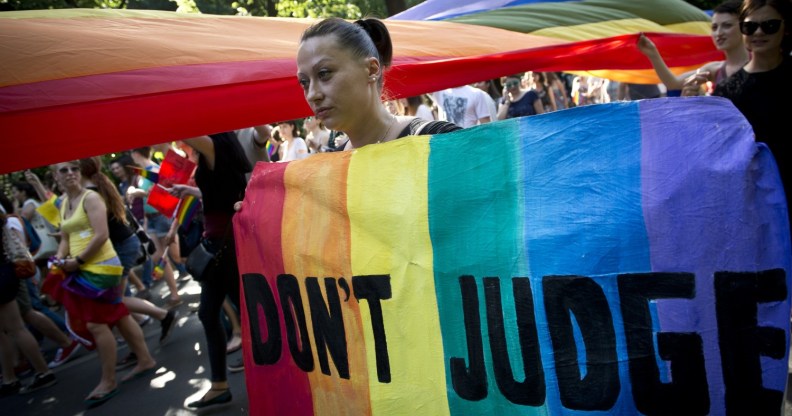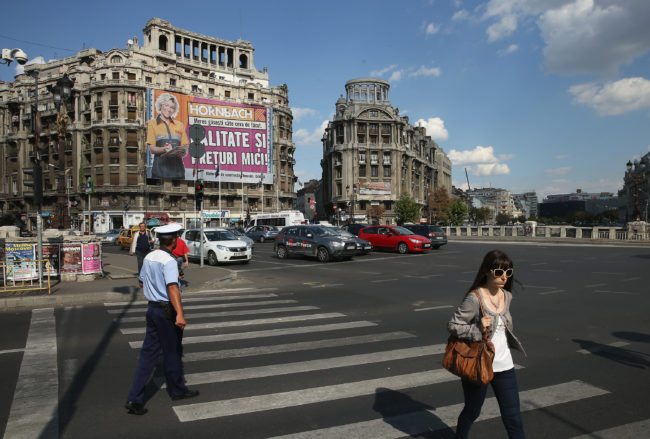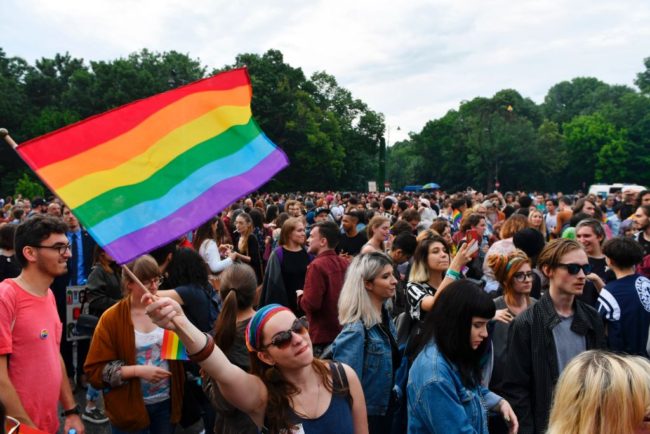Romania sets vote on gay marriage ban

Romania will vote on whether to change the constitution (Getty)
Romania has set a date for a referendum to prevent same-sex marriage by changing the constitution to define marriage as a union between a man and a woman.
The vote has been announced for 6-7 October after the country’s Senate voted to allow the referendum to be held.
Romania’s other parliament chamber voted in support of the same measure last year.
Social Democrats leader Liviu Dragnea is pushing forward with the referendum after three million people signed a petition which called for the constitution to define marriage as between a man and a woman.

Bucharest city centre, Romania (Getty)
Dragnea said that the country, which is primarily Orthodox, and the government are “committed” to the change.
“It is known that we are committed in this direction,” he said. “Our intention is to end up organising the referendum to change the constitution on the family issue this autumn.”
The petition was led by the Coalition for the Family, a group of 30 non-governmental organisations which back anti-LGBT policies to “promote the traditional family.”
Currently, the constitutional definition of marriage is between “spouses.”
The petition allowed the top court to open its doors to a referendum because a change in the constitution can only be proposed by either the president, the government, a quarter of lawmakers in parliament or a petition with at least 500,000 signatures from Romanian citizens.

People takes part in the Bucharest Pride march in 2017 (DANIEL MIHAILESCU/AFP/Getty Images)
Most EU countries allow either same-sex marriages or civil partnerships, but Romania does not even recognise those performed abroad.
Human rights organisations have come together to protest the referendum, including submitting legal challenges on the constitutionality of the vote to the country’s Constitutional Court.
Amnesty International, along with the European Commission on Sexual Orientation Law (ECSOL) and the European Region of the International Lesbian, Gay, Bisexual, Trans and Intersex Association (ILGA-Europe) have come together to challenge the constitutionality of the vote.
“Instead of recognising that everyone is entitled to the same human rights and equal protection under the law, this referendum panders to homophobia and might result in constitutional changes that would violate European and international law,” said Arpi Avetisyan, lawyer for ILGA Europe.

